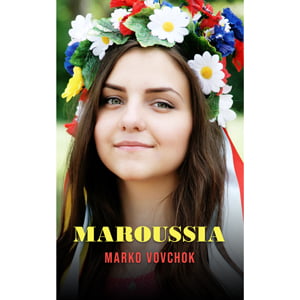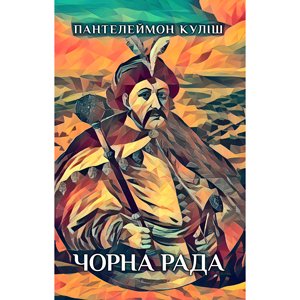
I am about to relate what took place a long time ago in Ukraine, in an unknown but fresh and charming part of that country.
I like little-known lands. Travelers do not visit them. Left to themselves, they keep to themselves their retreats and their secrets, their flowers and their feelings, their hardships and their simple pleasures. Their history is not known to everyone. The customs of their people are their own; if they are proud of all this, it is without suspecting it. One finds there what one does not find anywhere else; people and scenes are new. These countries, without the world’s knowing it, oftentimes have their heroes, real heroes.
I admire also these heroes, especially if they are real heroes, upright and sincere.
When they do great things, they do not shout in a loud voice: “Behold! Behold! It is I who have done this! Come and reward me!” Being what they are, they cannot help being heroic.
But enough of philosophy, as my teacher used to say when he saw that we were not of his opinion. Let me relate the story.
In the little corner of Ukraine of which I am going to tell you, there was once a house, built like all houses in the country; and in this house lived a Cossack, Danilo Tchabane, and his family.
Do not, I beg of you, confound the Cossacks of Ukraine with those of Don, those bearded creatures with terrible round eyes, coarse speech, and impudent manners; they do not resemble each other at all.
The Ukrainians do not wear a beard until they are fifty years old. It follows that in this country you find either gray beards or no beards. The young men wear a mustache like the Poles. The Ukrainians are tall, strong, and slender; they have, mostly, regular features, clearly marked eyebrows, large almond-shaped eyes, a calm, noble expression, a little severe, which may sometimes appear sad.
Do you wish to know what the word Cossack means? Cossack is a Turkish word, and means “ warrior on horseback.”
During the time when Ukraine was a republic, and made war upon the Turks, the latter described the unknown heroes with whom they fought by the name of Cossacks. I will not relate all the wars of this republic; it would take too long a time. Suffice it to say, that for long years it was between two fires, as we say, great Russia and Poland. We might even say between four fires, if we should count the Turks and the Tartars. At last, not being able to agree with Poland, this republic had accepted the “fraternal” propositions of Russia.
“We are too weak to contend any longer with our neighbors. We have maintained the fight gloriously until now, it is true; but we will end by being crushed. Russia proposes an alliance with us, let us accept it.”
Thus thought and spoke the old Chief, Bogdan Khmielnitski, and the people agreed with him.
In the beginning everything was pleasant. Equality, fraternity, liberty, the Russians respected all; but, little by little, things changed.
In less than a year the people had a thousand reasons for asking their Chief Bogdan: “What have we done?”
The old chief, on hearing this, wept inconsolably.
“Let us try to remedy it,” he said, but he did not succeed, and died of grief.
After his death Ukraine had to undergo many trials. She was divided into two parties; one was for Russia, the other for Poland.
A third party was formed; this one was for the complete independence of Ukraine. Unfortunately, it was not very large. It is just at this time that our story begins.

